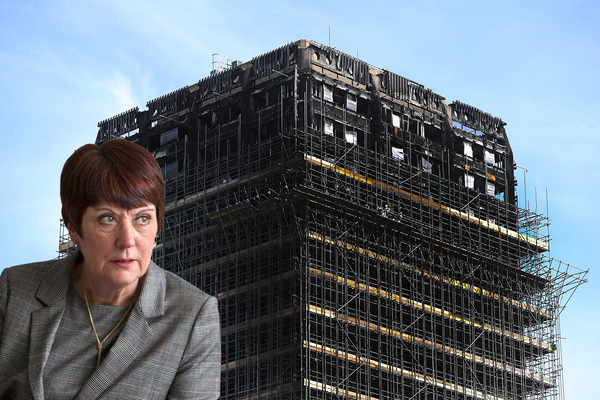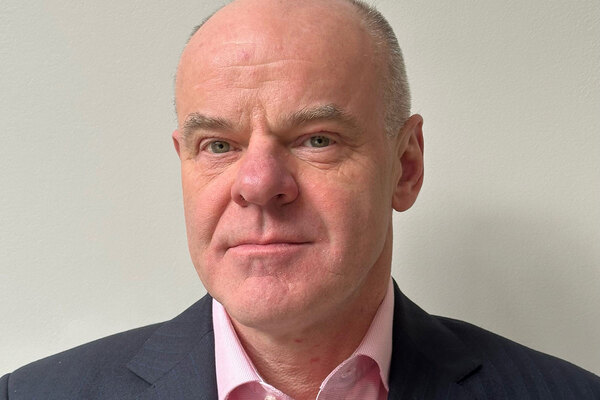You are viewing 1 of your 1 free articles
Why we are investing in whole communities – not just for those in our properties
The new chief executive of First Choice Homes Oldham, Vinny Roche, argues that radical thinking is needed in areas with high deprivation
Poverty is now moving so fast in some communities that the services and initiatives designed to combat it can no longer keep pace.
A decade of austerity can be felt in the streets where the homeless sleep, in queues at A&E and in the communities where we work. Funding levels for public services as we used to know them are gone – for at least a generation, probably forever.
We can invest in programmes to improve lives, but often we find ourselves running to stand still. In parts of the country it is not about reversing the problem, simply applying a handbrake.
The question of the role housing associations should play in communities – and most notably where we should invest our money and resources – is an ongoing one.
“Should we ‘stick to the knitting’ or is there a wider calling for landlords?”
But as housing associations are increasingly left as ‘last man standing’ with regard to finances in areas facing major challenges, the debate has become more poignant.
The arguments are familiar. Should we ‘stick to the knitting’ or is there a wider calling for landlords?
Should we dare to invest in services that help people who may not be our tenants, but will bring a greater prospect of prosperity to a community?
How can a board justify funding projects that may not directly benefit the tenants who pay the rent each week?
In reality, there is no approach that can be deemed ‘right’ by every landlord.
Where services and funding are concerned what really matters is location, location, location. Services should be built around a clear understanding of need at a very local level.
Across Oldham we have some homes in more affluent and desirable areas. But in one particular area, child poverty stands at more than 40%.
“Where communities are thriving, a scaled-back service may be all that is required.”
We have to cut our cloth accordingly.
Where communities are thriving, a scaled-back service may be all that is required. However, in communities where deprivation is increasing, radical thinking is needed.
Rising poverty threatens to destroy entire neighbourhoods.
To continue with traditional ideas around how we deliver services will simply slow down the inevitable.
We all need to aim for more than that.
If poverty is getting worse then we need new interventions that can deliver change at a quicker pace – and that means investment across entire neighbourhoods, not just for people in a certain tenure.
It also means a clear vision of what needs to be achieved via deep and meaningful partnership working with local authorities, health partners, police and the voluntary sector.
“To continue with traditional ideas around how we deliver services will simply slow down the inevitable.”
Partnership working is often championed. But a true partnership between organisations that delivers lasting change is tough to achieve.
It requires long-term commitment, and an acceptance of risk on all sides and the elephant in room: at least one of us has to relinquish some control! Too often because of these barriers, partnerships collapse into one-off schemes that deliver short-term results. A flash of perceived success and everyone returns to their day jobs.
Risk is a major part of any transformation process, and big change is needed if we want a shake-up of how we deliver services. As landlords we will need to take our share.
First Choice Homes has been building partnerships with local health services in Oldham over the past few years. Not talking shops, but partnerships that actually deliver services at scale to people in need, in our hospitals and in our communities. Services that are easing pressure on our “at breaking point” public services.
“Letting neighbourhoods consciously slide into decline and watching our assets fall in value is a bigger risk than investing in transformation.”
It has required upfront investment and a commitment to deliver services that go beyond our own tenants.
Of course, there are always the accountants to consider in this equation. But the business case is simple.
Letting neighbourhoods consciously slide into decline and watching our assets fall in value is a bigger risk than investing in transformation that can reverse the trend and bring people out of poverty.
Transforming our services and being prepared to invest in whole communities comes at a risk – but it should be one we are willing to take.
Vinny Roche, chief executive, First Choice Homes Oldham











